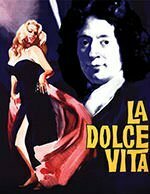“La Dulce Vita” – Music of Corelli, Geminiani, Bach, and Locatelli
“La Dulce Vita” – Music of Corelli, Geminiani, Bach, and Locatelli
At Augustana Lutheran Church, Chicago
The Baroque Band, a period-instrument ensemble established in Chicago six years ago by British baroque violinist and conductor Garry Clarke, has entitled the mostly-Corelli program it is bringing around the city this weekend “La Dolce Vita,” after the 1960 film, as part of what appears to be a movie-themed season. While it is unclear exactly what this evening’s concert had to do with the movie in question beyond being (mostly) Italian, the title does reflect the refreshing charm and grace that pervades the music on offer.
Archangelo Corelli (1653-1713) was one of the most significant of Baroque composers, even if he does not today retain the fame of Handel, Vivaldi, or Bach. While his surviving output is relatively small, he was the first composer to make a living composing instrumental music; his most renowned work, the set of twelve Concerti Grossi (concertos for several instruments, in this case all stringed), Op. 6, inspired in homage Handel’s own Op. 6 Concerti Grossi, which are considered along with Bach’s ubiquitous Brandenburg Concertos the height of the genre, and would come to be greatly admired by Beethoven. These collections of short movements in alternating tempos formed a major Baroque precedent for the symphony as it would later take form under Haydn, Mozart, and Beethoven.
This evening’s concert centered around selections from Corelli’s Op. 6: No. 9 in F Major, No. 3 in C minor, No. 10 in C Major, and No. 2 in F Major. This is music that effortlessly and convincingly combines vigor with innocent charm; and while what may be the most famous of Corelli’s works, Op. 6 No. 8 (the so-called “Christmas Concerto”), was not programmed, everything here testifies to the high quality of the Op. 6 set in general.
Filling out the program was a selection of individual works that drew on Corelli to varying degrees. A concerto grosso by Francesco Geminiani (1687-1762) was drawn from material from one of Corelli’s trio sonatas, which taken together represent probably his greatest legacy apart from the Op. 6 Concerti. Bach’s Organ Fugue on a Theme of Corelli, BWV 579, received a performance in an arrangement for strings by the ensemble’s own conductor Garry Clarke. No. 5 in D Major from the Introduttione teatrali, Op. 4, by Pietro Locatelli (1695-1764), of all these works providing the most satisfyingly striking contrast to Corelli. Like Corelli himself, Locatelli was a noted virtuoso violinist; but unlike Corelli, he seems to have written with virtuosos in mind to a greater extent, and his music immediately manifests a boisterous playfulness that one doesn’t hear in the somewhat more cerebral Corelli, whose dramatic sensibility relies less on flashy effects and difficult passagework without being any the less effective.
As regards the performances, the Baroque Band can certainly not be faulted for its enthusiasm and musicality; Garry Clarke’s conducting was fully alert to expressive phrasing and subtle dynamic contrasts, and he drew an ideal sense of weight from a group of only 10 players, plus harpsichord continuo. A more subdued performance can make these pieces resemble very laid-back chamber music, and although they are not Beethoven symphonies (and are certainly not meant to be!), such an approach can belie the quiet power of their own that can be projected by these pieces. However, one can also hear more polished period-instrument playing than was on display this evening: ensemble was often out-of-tune and sometimes rhythmically sloppy, and certain passages (the Allemanda: Allegro in Corelli’s Op. 6 No. 10 comes to mind) would have received greater impact from more incisive articulation. The Bach transcription would have needed more confident and in-tune playing to successfully bring out the counterpoint in all its clarity – following its performance Clarke noted that the temperature control in the venue (Augustana Lutheran Church in Hyde Park) had not been kind to the instruments; baroque instruments can admittedly be hard to keep in tune. Likewise, the more dashing Locatelli concerto was something of a hurdle for the musicians, although they seemed to relish the challenge and the flair of the piece.
Yet I found that these technical issues ultimately detracted little from the enthusiasm of the performances in what proved to be a most enjoyable and refreshing evening of intimate music-making – a satisfying alternative to the note-perfect yet lukewarm performances heard perhaps too often from the Chicago Symphony Orchestra.
Recommended
Samuel Wigutow
Date Reviewed: March 8, 2013
7:30PM, Saturday, March 9, 2013 at the Music Institute of Chicago, 1490 Chicago Avenue, Evanston.
7:30PM, Wednesday, March 13, 2013 at the Symphony Center Grainger Ballroom, 220 South Michigan Avenue, Chicago.
$15-$35
